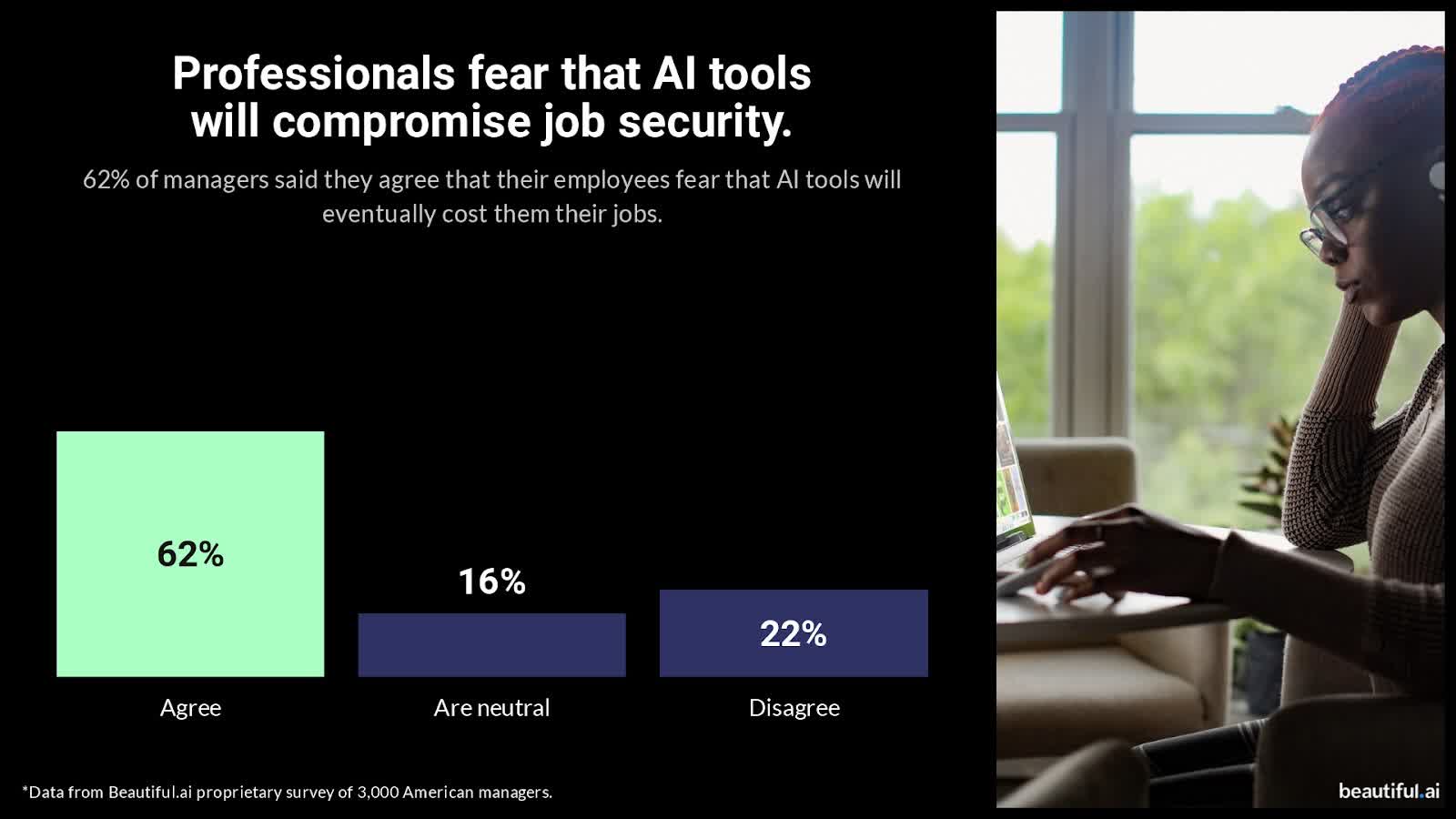A hot potato: Just in case all the previous reports haven't painted a grim enough picture, another survey into the impact artificial intelligence will have on jobs over the coming years has been published. The takeaway is that around 41% of senior executives say they expect their workforces to decrease in size as a result of the technology.
Adecco Group, the world's second largest Human Resources provider and temporary staffing firm, asked 2,000 senior execs at large companies worldwide about the effects AI will have on their businesses, making it one of the largest surveys of its kind.
Companies in the United States, Britain, France, Germany, Japan, Spain, Canada, Australia and Singapore from sectors including defence, pharma, healthcare, logistics, and more took part. The main finding was that just over 4 out of 10 executives said they expect to have fewer people working at their businesses due to generative AI.
Another finding was that while most of those surveyed said AI would be revolutionary and game changing, the vast majority added that they had not made enough progress when it came to adopting the technology. Adecco CEO Denis Machuel said companies should prepare for AI's impact by training employees to work with the technology rather than recruiting specialists.
"Almost all jobs are going to be impacted by AI one way or another," Machuel told Reuters. "AI can be a job killer and it can also be a job creator."
"Between jobs created by AI and jobs destroyed, we believe this is going to be balanced," Machuel added.
AI companies and those in charge of introducing the technology to their organizations like to push the narrative that it will reduce the time workers spend on mundane tasks while improving efficiency and be a useful collaborative tool, but we're yet to see any reports suggesting it won't result in massive job losses globally – Elon Musk thinks it could lead to the end of all human employment.
A similar survey that was carried out last month by Beautiful.ai, which makes AI-powered presentation software, questioned over 3,000 managers. It found that almost half of all participants said they are hoping AI can replace employees with cheaper artificial intelligence tools in 2024. Most respondents said they believed AI would provide an opportunity to lower salaries, while 12% said they are using AI in hopes of downsizing and saving money on workers' pay. Furthermore, just under half said they think AI tools will fuel wage declines across the country.
Other AI-focused surveys include one from September that predicted the technology would replace over 2 million US jobs by 2030. An earlier study claimed that generative AI could affect 300 million jobs globally.
Masthead: Wikkimedia commons

